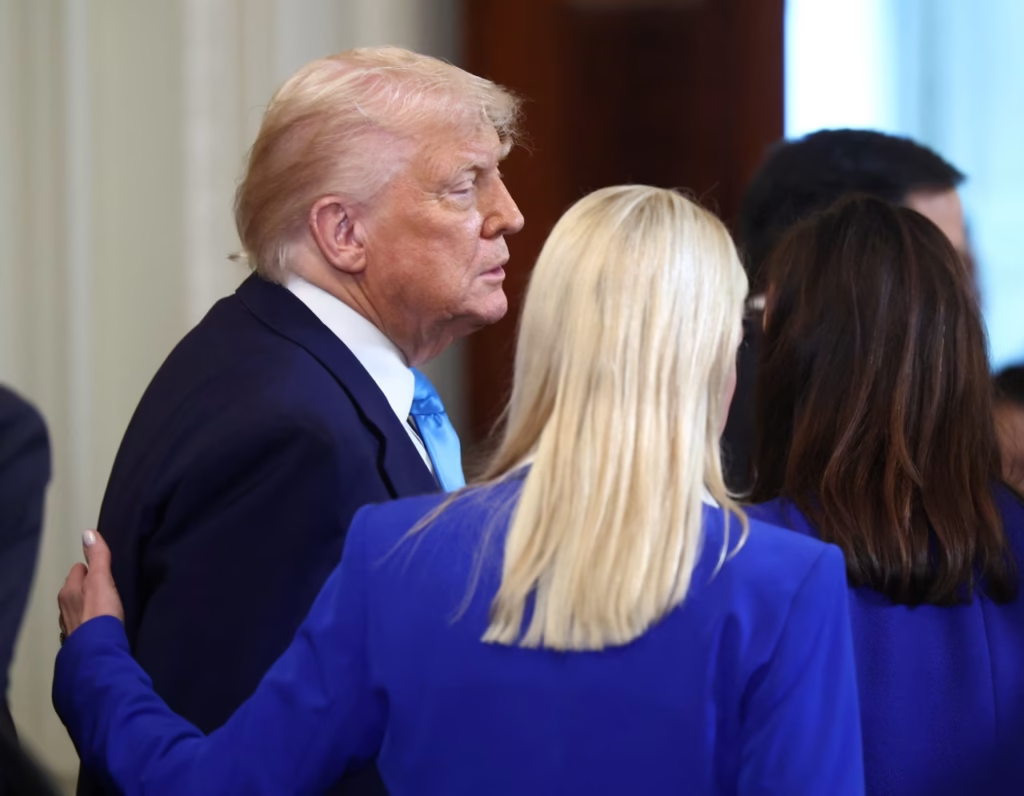Florida free speech law is making headlines again, and this time it might come to the rescue of a major media house — The Wall Street Journal. The news outlet is facing a defamation lawsuit filed by former President Donald Trump, but Florida’s new legal protections for speech and journalism could offer it a strong defense.
This development is not only important for the Journal but could also set a precedent for how the media covers public figures going forward. In this article, we’ll break down the lawsuit, explain the Florida free speech law, and explore how it might influence the outcome of this high-profile case.
Background of the Lawsuit
Donald Trump has filed a defamation lawsuit against The Wall Street Journal, claiming the publication knowingly published false information about him. The case stems from an article that suggested unethical or unlawful behavior linked to Trump’s business dealings and political actions.
Trump’s legal team argues that the publication acted with “actual malice,” a key legal requirement in defamation cases involving public figures. On the other hand, the Journal claims the reporting was based on factual evidence and protected under journalistic rights.
With the lawsuit filed in Florida, where Trump now resides, the state’s unique laws could play a critical role in the defense.
What Is the Florida Free Speech Law?
The Florida free speech law, officially known as the “Media Protection Act,” was passed in 2023. Its goal is to safeguard journalists and publications from abusive defamation lawsuits, especially when the speech in question involves public matters or public figures.
Key Features of the Law:
- Public Figure Protection: Makes it harder for public figures to win defamation lawsuits without clear proof of actual malice.
- Anti-SLAPP Provisions: Offers protections against Strategic Lawsuits Against Public Participation (SLAPP), where lawsuits are filed mainly to silence or intimidate critics.
- Early Dismissal: Allows defendants to request early dismissal of cases if they believe the lawsuit restricts free speech.
This law mirrors similar protections found in states like California and New York but has some unique twists designed for Florida courts.
Why Trump Is Suing the Wall Street Journal
Trump alleges that The Wall Street Journal published false claims that damaged his reputation. He points to specific statements about:
- His alleged attempts to interfere with investigations
- Business transactions labeled as “suspicious” or “possibly criminal”
- Negative portrayals of his actions during and after his presidency
Trump’s legal team argues that these statements are defamatory and part of a larger pattern of bias against him in the media.
However, the Journal defends its reporting as fair and fact-based. They claim the article used verified sources, included proper context, and aimed to inform the public — not defame.
How the Florida Free Speech Law Might Help the WSJ
This is where the Florida free speech law could tip the scales. Because the article involves a public figure and matters of public interest, the Journal’s lawyers may use the law to:
- Push for Early Dismissal: Claiming the lawsuit restricts protected speech and should be dismissed under the anti-SLAPP section
- Avoid Costly Discovery: If successful, the law allows the court to dismiss the case before expensive legal processes like depositions begin
- Shift Legal Burden: The law puts the responsibility on Trump to prove actual malice, which is notoriously difficult
These protections are specifically designed to prevent media organizations from being dragged into lengthy and expensive legal battles that could discourage truthful reporting.
Legal Experts Weigh In
Many legal experts believe this case will be an important test of Florida’s new law. Here’s what some have to say:
“Sandra Klein, Media Law Professor at the University of Florida,” says:
“Florida’s free speech law offers strong protection for journalism, and in a case like this, it could be the difference between dismissal and a drawn-out trial.”
Robert Elliot, a First Amendment attorney, explains:
“Trump’s legal team faces an uphill battle. Proving actual malice is very tough, especially when the article includes sources and public records.”
Janelle Howard, Legal Analyst from LegalTalk News, adds:
“The anti-SLAPP feature of Florida’s law is designed exactly for this kind of situation — where a public figure is using the courts to push back against criticism.”
Impact on Journalists and Public Figures

This case isn’t just about Trump and the Wall Street Journal. It could reshape how journalism is done in Florida and beyond.
For Journalists:
- Stronger protections may encourage more investigative reporting
- Less fear of lawsuits might allow more coverage of controversial figures
For Public Figures:
- It becomes harder to use defamation lawsuits as a defense tactic
- Encourages more transparency and accountability under media scrutiny
If Florida’s free speech law helps the Journal win or dismiss the case, it could empower media across the country to take similar stands.
Possible Outcomes of the Case
Here are three likely scenarios:
1. Case Dismissed Under Free Speech Law
The Journal successfully argues that the lawsuit violates Florida’s free speech protections. The judge dismisses the case early, and Trump’s legal options are limited.
Impact: A strong win for press freedom and a major setback for Trump’s strategy.
2. Case Moves to Trial
If the court finds enough basis to proceed, the case could go to trial. Trump would then need to prove the Journal acted with actual malice.
Impact: Lengthy and expensive for both sides. Could still end in a win for the Journal, but not without heavy costs.
3. Settlement or Withdrawal
Trump’s team may decide to settle or withdraw if the case seems unlikely to succeed under Florida’s legal standards.
Impact: Less public closure, but also less risk for both parties.
Conclusion
The Florida free speech law could be the shield that protects The Wall Street Journal in its legal battle with Donald Trump. The law is designed to defend the press, especially when powerful public figures try to use defamation lawsuits to suppress critical coverage.
While the case is still unfolding, it holds significant implications for journalism, free speech, and the use of courts in political disputes. If the Journal succeeds in using Florida’s law to its advantage, it may inspire similar defenses in future cases — creating a stronger, freer media environment across the country.
In the end, this case is not just about one article or one lawsuit. It’s a test of how far the law can go to protect truth, transparency, and the right to speak freely in the face of power.
Read Next – Trump Ghislaine Maxwell Pardon: Ex-President Says He Can, Denies Visiting Epstein’s Island






